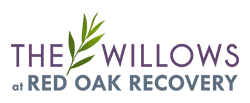Each person’s addiction is specific to her own life, and there is only so much you can do for that person outside of the professional help she must seek. Addiction comes in many forms, and identifying an addict can be tricky. It can involve drugs and alcohol, gambling, shopping, sex, or toxic relationships. Whatever addiction it may be, the best way to help an addict is with compassion and without judgment. Below are some suggestions on how to help an addict with building trust, honesty, respect, and support.
How to Help an Addict Identify the Problem
How do we identify an addict? More often than not, addicts are not able to determine their problems. Addiction, whether to an activity or a substance, creates the affected person’s feeling of comfort and safety so that she won’t see it as a problem. A sign of addiction is use in isolation—disappearing for long periods of time without an explanation or hiding out alone to use. Addicts tend to detach from social engagements to use.
Moodiness is another sign of addiction. When an addicted person shows an increase in irritability, stress, anxiety, and depression, these may be signs of withdrawal.
Financial trouble can also signal a problem with addiction. Addicts may not be able to pay for basics like groceries and rent, so they steal from loved ones to continue abusing harmful substances or engage in self-destructive activities.
If you see that your loved one is an addict and needs help, remember to approach her with compassion and not judgment. There are centers like the Willows at Red Oak Recovery that offer an addiction treatment program for women with services like outdoor therapy, trauma therapy, relationship building, service work, acupuncture, meditation, yoga, and therapy sessions. The center offers a peaceful, home-like environment on an old horse farm. It helps with overcoming trauma, eating disorders, and improving mental health.
How to Help an Addict Through Family Therapy
The family therapy program in Asheville, NC, is another effective way of helping an addict. Most addicts come from a family of dysfunction, enabling, or codependence. Family therapy involves both the addict and her family with the guidance of a professional counselor. This allows the person struggling with addiction to reconnect with her family and build a support system through a network of loved ones. Family therapy is highly recommended because of its effectiveness in helping families become aware of their dynamics and how they affect the addict.
Relationship-building exercises and trauma-informed care in NC also helps addicts and their families. A significant part of family therapy is building trust. Addiction is a “family disease” because the disorder affects everyone in the family. When an addict loses her family’s trust, rebuilding that trust is an integral part of recovery. Trust-building exercises include setting clear expectations and communicating promptly and openly.
Help With Compassion
Practicing compassion with an addicted person is one way to help. Addicts who can see that they’ve hit rock bottom recognize that they have a problem and are in desperate need of support. Compassion is paramount during this stage. Offer your loved one support, and give her a reason to feel hopeful. Providing hope helps the addict develop new neurological pathways to cope with the challenge and overcome it. Offer recognition of her suffering. Remember that people struggling with addiction are in deep pain. Let them know that you hear and see them and feel their pain. These are ways of practicing compassion.
The recommendations here are just a few suggestions on how to help an addict. A person struggling with addiction may not be ready to confront her problems. Kindness, support, and compassion are vital. Addiction does not have to ruin your loved one’s life. Contact The Willows at Red Oak Recovery for an excellent rehab program in North Carolina that starts her on the path to a healthier, happier life. Call 855.773.0614 today to learn more about recovery.


